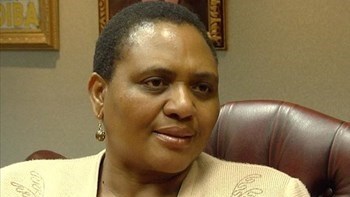Agriculture
Minister of Agriculture talks on the budget vote of agriculture for 2022/23─── 11:00 Mon, 16 May 2022

The Minister of Agriculture, Land Reform and Development, Thoko Didiza, addressed the agricultural sector in her 2022/23 budget vote speech. She outlines prospects for the sector and areas of improvement.
THE MACROECONOMIC ENVIRONMENT
The new normal ushered by COVID-19 has meant that we execute strategies on agricultural production and food security differently. Agriculture has shown buoyancy over the past two years, growing by 13.4% year-on-year in 2020 and 8.3% in 2021. The employment figures in the sector were at 2 868 000 in the fourth quarter of 2021, reflecting stability over the past few years. Most agricultural subsectors in South Africa are emerging from one of the best years for the agricultural sector—the 2020/21 season. Grains, oilseeds and some fruit such as citrus saw bumper harvests, which boosted export earnings and improved farm income.
However, the economic growth experienced and the relative stability in employment are in danger of being eroded due to a number of factors, including the geo-political issues affecting agricultural trade. The current Russia-Ukraine conflict has the potential to scupper our growth, as there are real concerns about its potential impact on escalating food insecurity, since the two countries are major exporters of grains, oilseeds, fertilisers, and crude oil products to international markets.
I have established a sector Task Team, led by the National Agricultural Marketing Council team that is constantly scanning the environment and providing periodic reports on this unfolding situation and the impact on the sector in particular the escalation of food prices, animal feed and fertilisers.
Honorable Chairperson, honourable members, the intention of our land and agrarian reform has always been about redressing the inequity in terms of land ownership because of colonial and apartheid policies. We must ensure tenure security for all, empower citizens to participate in the agricultural economy and ensure integrated rural development. Our interventions in policy, legislation and programmatic intervention must bring us closer in building an inclusive society, without leaving anyone behind.
The challenges of poverty, unemployment and underdevelopment must challenge us to continuously find solutions that can respond to these challenges. Racial discrimination also had a gender dimension, it is for this 3 reason that women empowerment in both land and agrarian sectors should be integral.
The participation of the majority of women in the agricultural sector has always been limited to subsistence farming and working in the commercial farms, largely because land access has always been a constraint.
Government’s intervention in order to correct the situation has been multi fold. Firstly, it has been about profiling women farmers who are producing for the market through Female Farmer of the year. Secondly, it was about allocating women with farms through the Pro-Active Land Acquisition Strategy (PLAS). Thirdly through department’s procurement. I wish to table the 2022/23 budget. Let me indicate from the outset that the Budget for the Agriculture, Land Reform and Rural Department is R17.3 billion. A sizeable portion of this budget is for transfers to Provincial Departments of Agriculture, as part of the division of revenue as well as transfers to Agricultural Entities.
These allocations relate to
a) Ilima /Letsema Conditional Grant - R610 million;
b) CASP (Comprehensive agricultural support program) –R1,2 billion;
c) CASP Extension Services – R304 million;
d) Commission on Restitution of Land Rights R3,7 billion;
e) Agricultural Research Council – R1,2 billion;
f) National Marketing Council – R48,5 million; and
g) Ingonyama Trust Board – R24,4 million.
I wish to thank the Portfolio Committee for their work in engaging us on our Annual Performance Plans for the year 2022/23, which outlines how we will utilise the allocated budget.
OFM News/Lee Simmons














